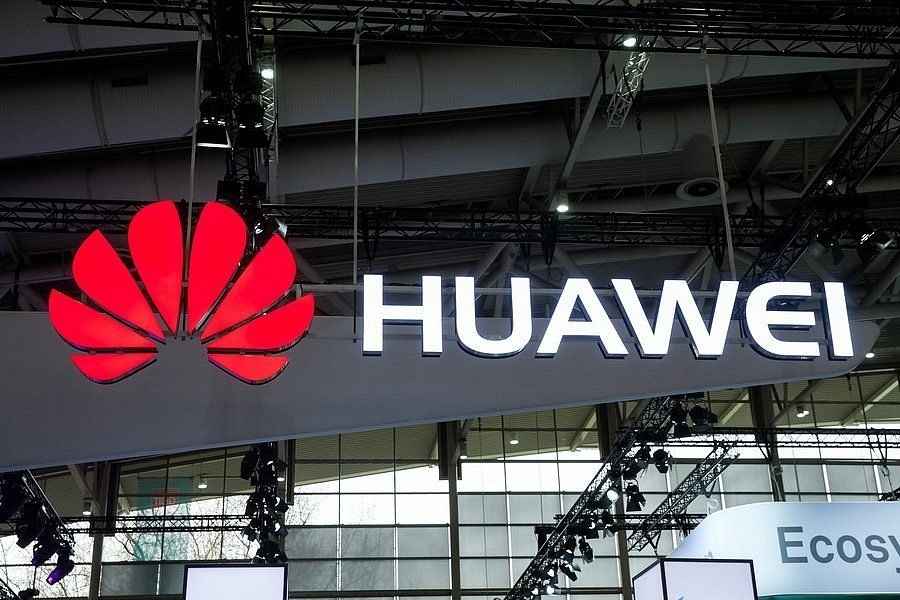World
No Way Huawei: We Can’t Allow China To Enter 5G Without Border Resolution
- The Chinese must be told repeatedly, in public and in private, that there can be no normality if there is no border resolution.
- Without border stability, we must deny China significant access to our markets.

Chinese telecommunications giant Huawei. (Picture: Twitter)
Chinese telecom giant Huawei has, for the umpteenth time, sought a “level playing field” for the company in India’s forthcoming 5G trials. In an interview to The Economic Times, David Li, chief executive officer of the company, blamed Covid and “geopolitics” for the Chinese telecom player’s woes in India.
That’s cute, for “geopolitics” is code for Chinese aggression on our borders.
After admitting that Huawei has been treated fairly for over 20 years in India, he hoped that India would give his company an equally fair field on 5G. He said two things of note: one, India’s security concerns should be “based on facts and global standards”; and two, he communicates his company’s stance to the government both directly and through his “customers”.
The last is significant, for it implies that Chinese companies lobby with the Indian government through local firms which want cheap gear and easy terms for their capital expenditure on network expansion. A news report, quoting anonymous sources, says that Airtel has recently given a procurement order to Huawei worth Rs 300 crore, which is said to be a major part of its capex.
That’s a worrying signal. Quite possibly, the news is a deliberate leak which allows Airtel to check if the government, after the Pangong Tso disengagement deal, has softened its stand on Huawei and other Chinese companies. If the government stands firm, the story can always be denied as inaccurate.
If Airtel has indeed signed up with Huawei, it is time for the government to say nothing doing. The truth is Huawei cannot be trusted, as one research paper by Gautam Chikermane (Huawei’s Techno-Economic Advantages and India’s National Security Concerns: An Analysis), forcefully argues.
In the context of border tensions, where China has been systemically encroaching on hitherto unresolved areas, and especially given China’s vastly superior capabilities in cyber-warfare and the embedding of spyware in devices, we cannot afford to give Huawei any such level field.
There have been reports about China’s efforts to blackmail India by introducing trojans that could bring our power systems down, and even our vaccine suppliers faced cyber threats. As noted earlier, in June last year, around the time of the Galwan Valley clashes, more than 40,000 Chinese hacking attempts were reported.
The real things to note are the following:
One, China has no interest in resolving the border issue; in fact, it likes to keep the border tensions alive so that during any subsequent disengagement, it wins concessions on trade or other areas. This is exactly what is happening now.
Two, China’s low prices and dominance in many sectors of trade, including areas involving hardware and software that have implications for national security, ensure that the reverse also happens: it uses trade to gain strategic advantage in areas involving security.
This implies that India’s counter-strategy, apart from strengthening ourselves in all vulnerable areas – border infrastructure, cyber security, dependence on China in high-tech areas, etc – must be the exact opposite of China’s.
We need to (1) insist that trade cannot be normalised without an agreement on the border, which has to be clearly demarcated and made tension-free; and (2) enter into a bilateral trade agreement where any time the trade deficit swells beyond a certain point, automatic import restrictions and increased Chinese imports from India must be triggered.
In short, no border deal, no normalisation of trade; and automatic restrictions on trade if deficits get out of control. And, of course, no commitment to One China till China agrees to One India – which includes our claims on Jammu and Kashmir.
A weaker player cannot afford to play hardball all the time, but we must at least be clear on strategy – and the Chinese must be told repeatedly, in public and in private, that there can be no normality if there is no border resolution. Without border stability, we must deny China significant access to our markets.
There is no other way to deal with a rogue superpower.
Introducing ElectionsHQ + 50 Ground Reports Project
The 2024 elections might seem easy to guess, but there are some important questions that shouldn't be missed.
Do freebies still sway voters? Do people prioritise infrastructure when voting? How will Punjab vote?
The answers to these questions provide great insights into where we, as a country, are headed in the years to come.
Swarajya is starting a project with an aim to do 50 solid ground stories and a smart commentary service on WhatsApp, a one-of-a-kind. We'd love your support during this election season.
Click below to contribute.
Latest